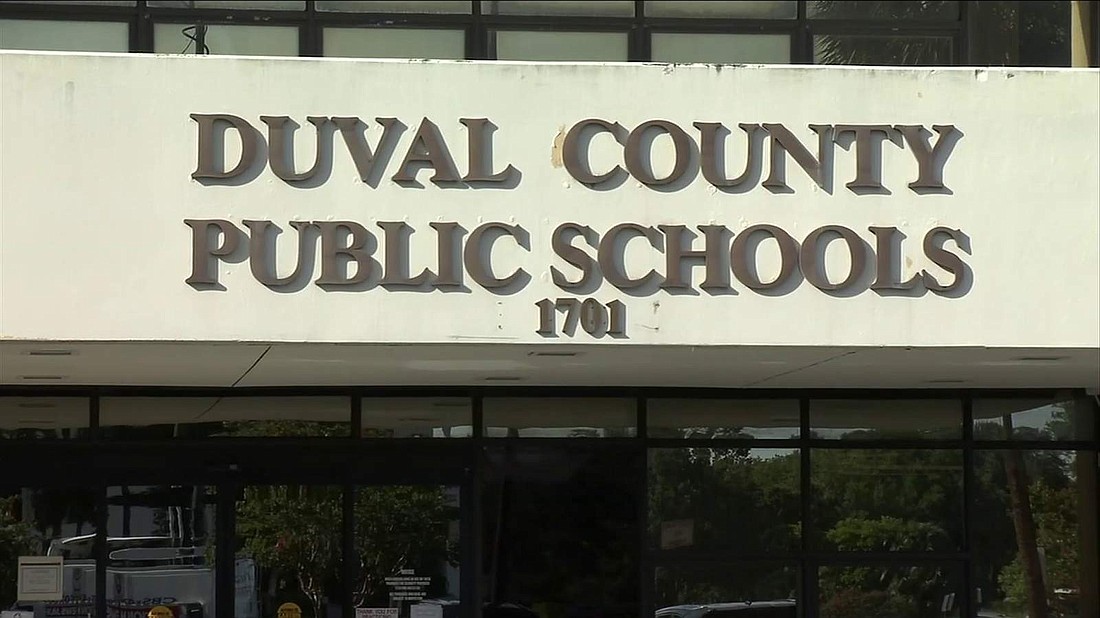
The ballot measure for a half-cent sales tax to fund public school capital improvements has wide support, Rep. John Rutherford will likely hold on to his seat and crime is the area’s No. 1 problem, according to a poll of Duval County voters.
The Public Opinion Research Lab at the University of North Florida poll of registered, likely voters was released Oct. 7. About 2,500 people were polled in June, about 550 in October.
The margin of sampling error is +/-4.2%. The survey was conducted via email, with a 2.5% response rate.
Here are the findings:
School sales tax
The poll found that 69% are in favor of the 15-year sales tax, 28% opposed and 3% were unsure.
The findings are close to UNF’s Jax Speaks Survey in June, which found 69% were in favor and 31% against.
“Jacksonville is very supportive of investing in their public schools, something we have consistently seen in our polling over the years,” said Michael Binder, research lab faculty director and associate professor of political science, in the report.
JEA board
On the referendum to authorize City Council to appoint and remove JEA board members, 76% said they would vote in favor of the change, 20% said they disagree and 3% were unsure.
“It is not surprising voters want do diversify oversight of the JEA board after the last year that JEA has had,” Binder said.
Rutherford or Deegan?
Registered voters in Congressional District 4 were asked about their choice in the race for U.S. House of Representatives between incumbent Republican John Rutherford and Democrat Donna Deegan, in her first attempt at elected office.
Rutherford is a former Jacksonville sheriff. Deegan is a former television journalist and founder of a nonprofit that benefits breast cancer patients and their families.
Fifty-seven percent indicated they’ll vote for Rutherford; 38% said they’ll choose Deegan. Three percent said they would vote for someone else, and 2% indicated that, given those choices, they will not vote.
“Despite Deegan’s extensive nonprofit work and name recognition in Duval, the Republican registration advantage in that district appears to be too much to overcome for the political newcomer and the former sheriff is poised to win a third term,” Binder said.
The mayor and the sheriff
Respondents were asked about their approval of Mayor Lenny Curry’s and Sheriff Mike Williams’s job performance. Both officials had higher approval ratings than when the Jax Speaks survey was conducted.
Curry, who had 45% approval in June, increased by two points to 47%, with 49% disapproval. Williams improved from 45% to 55% approval.
The percentage of respondents who were unsure of their approval of Williams decreased substantially since June, from 18% to 5%.
“The changes are pretty minimal for Curry, which is kind of surprising after the up and down summer with the RNC (Republican National Convention),” said Binder.
“Sheriff Williams’s net positive job approval is up to plus-14, which is more in line with previous polls. It is likely the protests of the spring temporarily brought down his ratings,” Binder said.
Rating the COVID-19 response
Florida is moving too quickly to ease restrictions and reopen businesses according to 55% of respondents, with 17% saying too slowly, and 28% saying the speed is about right.
When asked which impacts of the pandemic most concern them, 63% said the public health impacts and 37% the economic impacts.
The lab asked similar questions in April and June.
In April, 70% of respondents were more concerned about public health, which dropped to 60% in June.
Most Duval county voters believe that face masks help slow the spread of the coronavirus, at 84%.
Law enforcement and race relations
Respondents were asked about the Jacksonville Sheriff’s Office and race relations in Jacksonville.
Most Duval voters said the JSO can be trusted to do the right thing, either all or most of the time, at 65%, with 35% saying they can be trusted only sometimes, or not often at all.
In June, 54% of respondents said JSO can be trusted, versus 46% who said they cannot.
When asked if they believe that white people and black people receive equal treatment by Jacksonville police, 37% of respondents said they agree, and 63% said they disagree. That’s steady since June, when 64% agreed, and 34% disagreed.
When asked the same question about Hispanic people and white people, 40% agreed they receive equal treatment, while 60% disagreed.
Asked if they believe that police-involved deaths of black people are isolated incidents, or part of a broader, systemic problem of racism, 58% said it is a sign of a broader issue and 41% said isolated incidents. The response is the same compared to the same question was asked in June.
Crime or COVID-19?
According to Duval voters, crime is the most serious problem facing Jacksonville, with 30% of the responses.
That’s a change from June, when COVID-19 narrowly beat out crime as the most important issue. The percentage of respondents who indicated the pandemic as the most important problem decreased by 17 points between June and October, from 22% to 5% of respondents.
Education polled in second place, with 12%, followed by race relations at 10%.
Improving Downtown received 8% of responses, as did improving transportation and infrastructure.
The economy and jobs polled at 7%, improving storm infrastructure and drainage, 2%, and corruption in local government, 1%.